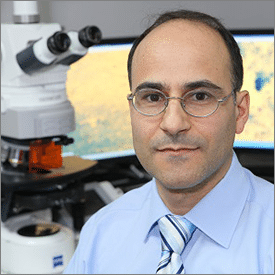April 11, 2019 — The Charcot-Marie Tooth Association today announced $1 million in research grants to industry partners and top CMT scientists worldwide, bringing to more than 50 the number of active research projects currently being funded. Every grant will have an impact on therapy development, from improving understanding of disease mechanisms to discovering new therapeutic targets and moving these into clinical trials. The grants represent the CMTA’s commitment to finding treatments and a cure for the CMT community and cover work on CMT types 1, 2, and 4.
Type 1 Gene Therapy Project:






